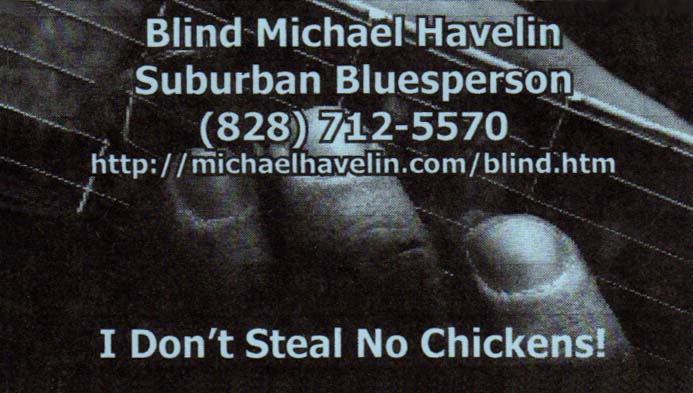
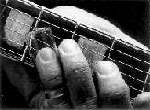 |
Country blues in the traditions of Son House, Robert Johnson, Blind Willie McTell, Johnny Shines, Pink Anderson, Shirley Griffith, Mance Lipscomb, Leadbelly, Mississippi Fred McDowell, and other greats. |
Table of Contents
Great Blues Quotes
A Short History of Blind Michael
Tunage
played & sung by Blind Michael
Busking in Asheville (video by Daniel Carpenter)
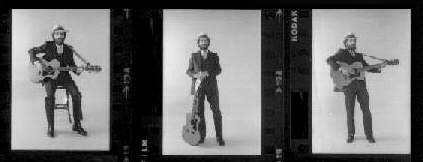
| Michael (as he was known in his formative years), grew up in Yonkers, New York, in the heart of the Hudson River Delta. In his late teens, he discovered the Prestige Bluesville album series which featured blues greats such as the Reverend Gary Davis, Sidney Maiden and K.C. Douglas, and Arhoolie records with people like Mance Lipscomb. It was a magical turning point. He found a musical base and started trying to play "the blues." This was tough for a middle class white kid. |
| In his early 20s, Michael became a ne'er-do-well rock musician based in Albany, New York. After four years as leader of The Bougalieu (pronounced "Boo-ga-loo"), frustration in the music business, the loss of a magical guitar and one of his primary musical partners, Michael quit musicianin' and went off to photography school in Rochester, New York. "The music was the best it had ever been, but the dream had died." | 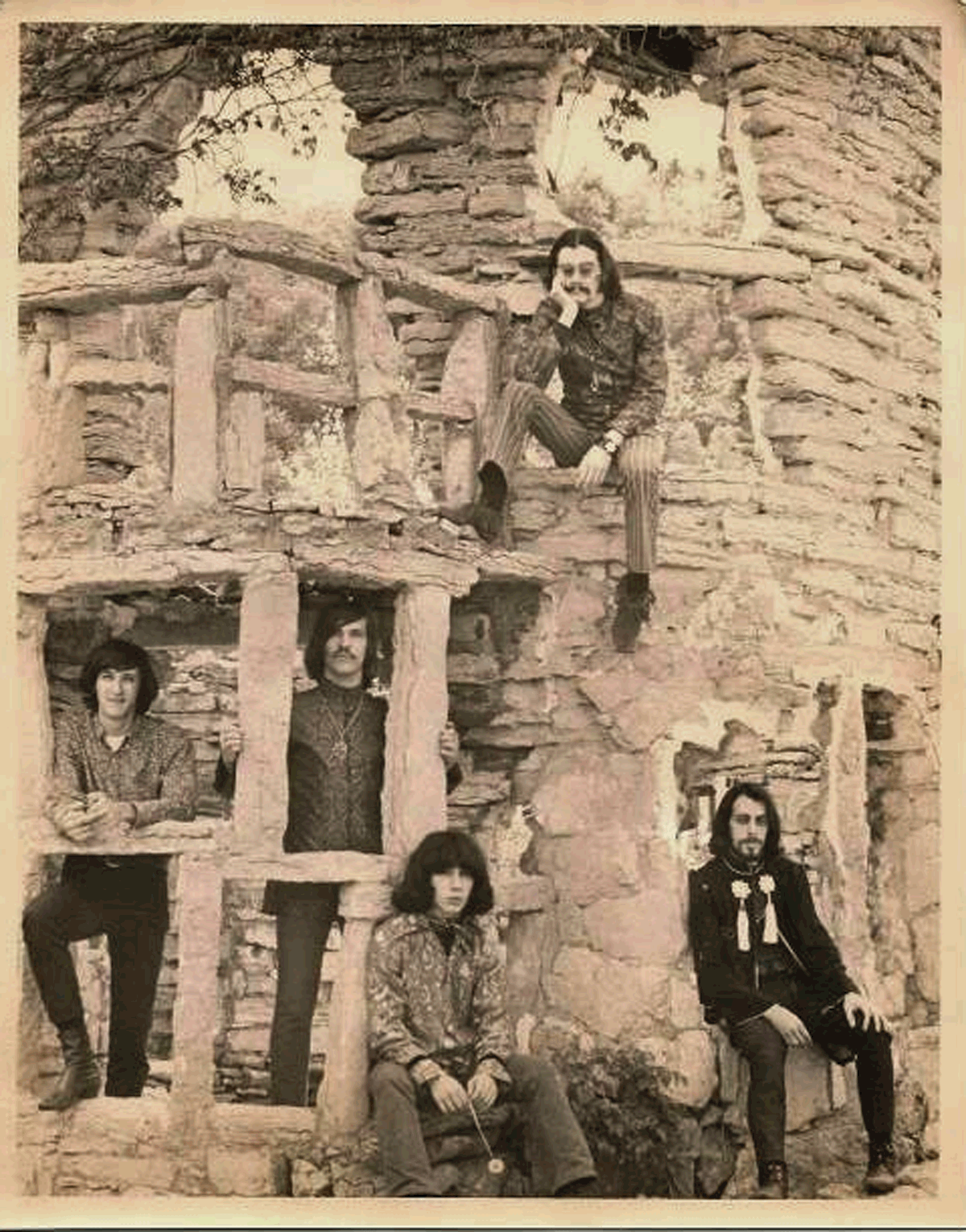 |
|
It was in Rochester that Michael met Son House, the legendary Mississippi bluesman who was a seminal influence on many famous blues figures, people like Muddy Waters and Robert Johnson. "We were gathering material for a documentary film on Son, but it never quite got made." Nonetheless, Michael spent many hours with the old bluesman. "He loved my little National, and I'd play harp along with him and watch his hands. He didn't know it, but he taught me lots about what it meant to play blues." Son had some theories about music, about making a song your own and putting your whole self into a tune, and his influence on Michael was immediate and powerful. It was during this period that "Blind Michael" was born. "The younger blacks didn't care about the old music, but I did. I decided to carry on the tradition as best I could, and took a stage name that fit the music. And besides... I'd been blind a few times in my life." |
| It's now more than 40 years later, and Michael has been through several different careers. "I've hung on to my Gibson SJ and the old National through the years, and acquired a 1966 Gibson ES-330-TD to replace the one that was stolen from me years ago. (It's since been sold.). I've played out again too, with a big band and a small Western swing combo named Cacti Delicti, and had a ball doing it. I'm woodshedding and studying hard, getting it back together. My hands remember, and there are tunes that I'm figuring out which vexed me before. I'm on a whole new plateau." | 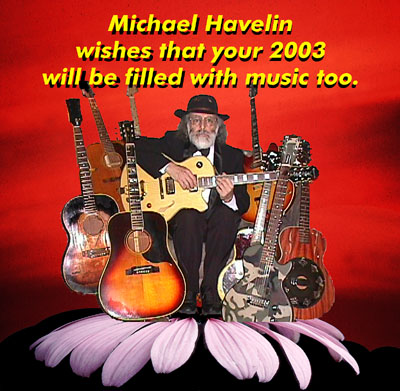 |
|
After a few years back in Asheville and not playing at all, a funny thing happened. The guy who came by weekly to cut my lawn and clean my gutters heard me strumming and asked who was playing. I admitted it was me and he asked a strange question. He didn't ask what I might have expected: what kind of music do you play? Not this guy. He asked "What kind of guitar is it?" I said it was an Epiphone Emperor, and he asked to see it. I brought it out to the porch and as I handed it to him, I asked, "Do you know what a 9th chord is?" He answered by spelling out the intervals that make a 9th chord. Enough. That was his bona fides. The fellow's name is Ronnie Paul, and he used to be a fusion jazz player and jazz guitar teacher in town for years until life took him on an unexpected turn. He hasn't played out for years. He says that the old blues I play in straight tuning and with slide is the stuff his daddy used to play back in South Carolina. Another old-timer I should have met. Well, we've become friends and we're encouraging each other back into music. He's giving me formal lessons and I'm looking at guitar in a whole new way. At 69 years of age, I'm finally learning what I shold have learned at the beginning. Oh, well. Sometimes it take a while, eh? |
| There have been times when I felt that my "natural" instrument was the 12-string. Several years ago I sold my 1960s Gibson B-45-12 12-string to my life-long music friend Simon McCain of Nashville. He already had one of that model, but mine had better action and a more powerful sound (maybe that was just the player, eh?). Though I don't play 12-string much, I felt I wanted one around just in case the urge hit me. I was able to find a nice Ibanez 12-string for less than $200. It turns out it's a great guitar. I believe I'll keep it. I'm now playing my old Blind Willie McTell and Leadbelly tunage again, along with tunes I've arranged myself for 12-string. My left forearm is killing me after a playing session, but the music is powerful. I love it! |
|
Blind Michael's perspective on his place in blues is unique: "I'm now old enough to be a bluesperson (P.C., eh?). I've been loved by losers and I've been a fool for them too. Money's run through my hands and I've seen friends and family members die. My dues are paid. And now I'm rediscovering myself again musically. This is cool!" Blind Michael is back! |
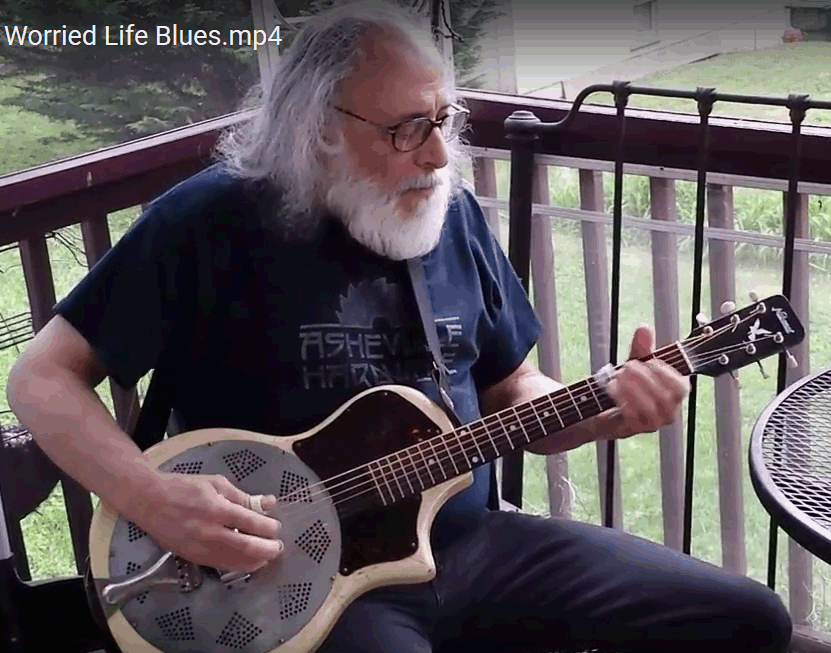 Worried
Life Blues (2017)
Worried
Life Blues (2017)
Copyright 2017 Michael F. Havelin
Go back to the Table of Contents
Email to Blind Michael Havelin